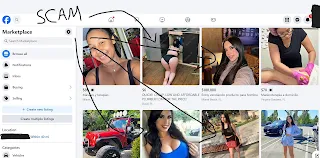In today’s digital world, scammers have devised cunning methods to exploit social media users, particularly on platforms like Facebook. One such tactic involves phone numbers, including international or unfamiliar numbers like 1-829-397-8710, to lure victims into traps.
The phone number 1-829-397-8710 originates from the Dominican Republic, as indicated by the 829 area code. This area code is associated with the Caribbean region and has been linked to the "one-ring" phone scam. In this scam, fraudsters use auto-dialers to call cell phone numbers, letting the phone ring once to prompt a missed call notification. They hope recipients will return the call, leading to hefty charges, including per-minute fees and international rates.
The Federal Trade Commission (FTC) has identified area codes such as 268, 284, 473, 664, 649, 767, 809, 829, 849, and 876 as being associated with this scam. The FTC advises against returning calls from unfamiliar numbers, especially those with these area codes, to avoid unexpected charges.
If you receive a call from 1-829-397-8710 or similar numbers, it's recommended not to answer or return the call. If you're concerned about potential charges, review your phone bill and contact your carrier to dispute any unauthorized fees. Additionally, you can file a complaint with the FTC or the Federal Communications Commission (FCC) if you've been targeted by such scams.
For more information on avoiding phone scams, refer to the FTC's consumer alerts.
Here’s how you can protect yourself and avoid becoming a victim of these scams.
Understanding Scammers’ Tactics
The One-Ring Phone Scam:
- Scammers often call and hang up after one ring, leaving a missed call notification.
- If you call back, you may incur hefty international or premium-rate call charges.
- Numbers like those with the 829 area code (linked to the Dominican Republic) are common in this scam.
Phishing Links via Facebook Messenger:
- Scammers send messages with fake offers, links to fraudulent sites, or malware-infected attachments.
- Some even impersonate your friends, urging you to "verify" details by calling a specific number.
Facebook Marketplace Fraud:
- Fraudsters pose as buyers or sellers, sharing fake phone numbers to lure users into further communication outside Facebook’s protections.
Impersonation Scams:
- Scammers create fake profiles mimicking real users, ask for phone numbers, and then use them to carry out fraud.
How to Avoid Scammers on Facebook
1. Spot Red Flags
- Unfamiliar Numbers: Ignore missed calls from unknown international or premium-rate numbers.
- Urgent Messages: Be wary of urgent claims, like "You’ve won a prize" or "Your account is at risk."
- Out-of-Character Requests: If a Facebook friend suddenly asks for personal information, verify their identity before responding.
2. Strengthen Your Privacy Settings
- Review your Facebook Privacy Settings regularly.
- Limit who can see your phone number and email address.
- Enable two-factor authentication (2FA) to secure your account.
3. Use Facebook Safeguards
- Use the Marketplace Buyer/Seller Protection feature when transacting.
- Block and report suspicious accounts immediately using Facebook’s Report Tool.
4. Avoid External Communication
- Keep interactions within Facebook’s messaging platform.
- Avoid calling unknown numbers or sharing personal contact details.
5. Research Phone Numbers
- If you receive calls from unknown numbers, search the number online to check for scam reports.
- Use trusted resources like the FTC’s consumer alerts to verify scam-related numbers.
What to Do If You’ve Been Targeted
1. Report the Scam
- Use Facebook’s Help Center to report fraudulent accounts or messages.
- Report the phone number to your local authorities or the Federal Trade Commission (FTC).
2. Monitor Your Accounts
- Check your phone bill for unauthorized charges.
- Watch for suspicious activity in your bank accounts or on Facebook.
3. File a Complaint
- Contact the Federal Communications Commission (FCC) if you’ve been scammed through a phone call.
- Inform your mobile carrier and request a block on future charges.
Final Thoughts
Scammers are evolving their tactics, but with vigilance and proper safeguards, you can stay protected. Always question unfamiliar messages, avoid calling unknown numbers, and utilize Facebook’s security tools. By being proactive, you can enjoy your online experience without falling victim to fraud.
For more tips on avoiding scams, visit FTC Consumer Alerts and stay informed about the latest scam trends.
Share this post to help others stay safe on Facebook!



No comments:
Post a Comment
Note: Only a member of this blog may post a comment.